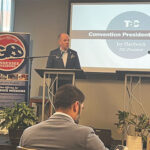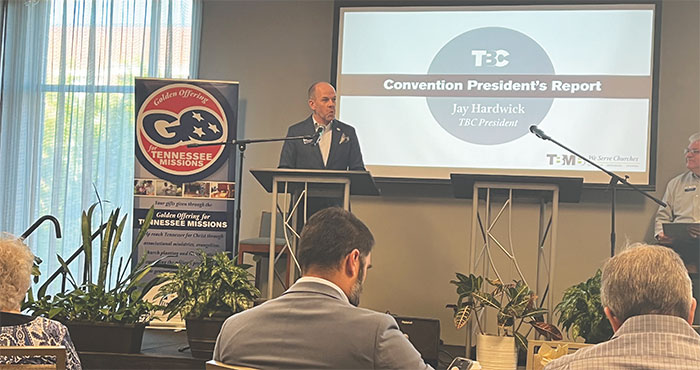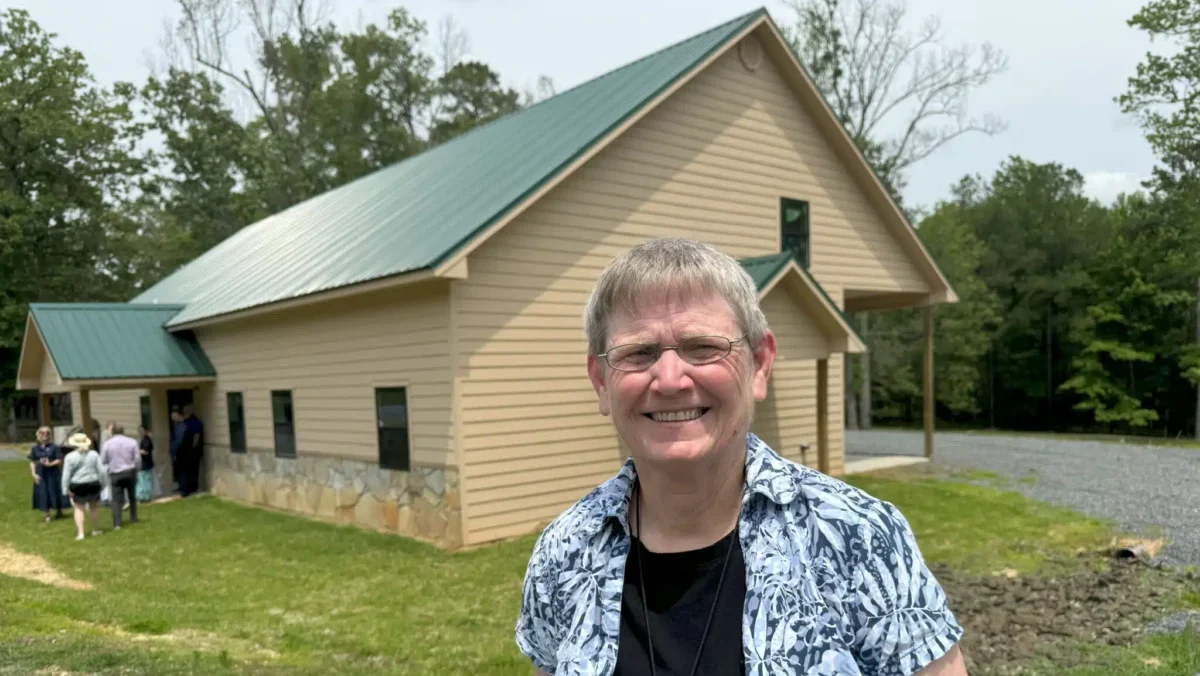In 2016, the world watched as American mountaineers Cory Richards and Adrian Ballinger tried to climb Mount Everest without supplemental oxygen. Richards made it; Ballinger got close.
“But what made their journey unique was not that they were attempting to climb Everest without oxygen — that had been done before, and it’s been done since,” said Andrew Hebert, pastor of Mobberly Baptist Church in Longview, Texas, in his message to the Southern Baptist Pastors Conference June 12. “What made their journey unique was that they documented their entire trip moment by moment on Snapchat.”
All along their way up the mountain, the pair took selfies and videos and posted them to social media.

“And as more and more people began to follow their journey, their trip became more than just a personal accomplishment — it became a performance for an audience,” Hebert said. “I’m struck by the fact that, if we aren’t careful, pastors also can become performers who do what we do to be noticed, to be seen and to be applauded.”
In his sermon, Hebert looked at the third Beatitude in Matthew 5:5 — “Blessed are the meek, for they shall inherit the earth” — and said the pathway of Jesus is different than the journey of those two climbers.
He said he and his church staff had discussed the story of Richards and Ballinger, and the worship pastor had pointed out that church leaders are more like the sherpas who are working to make sure the entire group makes it up the mountain safely.
“I think that’s profound because pastors in a sense are ministry sherpas. We are serving and shepherding God’s people as they move toward their “telos” (Greek word for “goal”) — Christ,” Hebert said.
Modern obsessions
He noted that it’s common today to be obsessed with image, reputation, brand and platform.
“We want to be influencers and thought leaders and catalysts as pastors,” Hebert said. “It’s tempting to seek platform and place and position, but our calling as pastors is not to be the ones taking the selfies, it’s to be the ones serving and making sure our flock is reaching its goal. Our calling as pastors is to be servants, not CEOs; we are shepherds, not kings.”
He said Jesus has a word for pastors in Matthew 5:5 — the blessed life comes with meekness, or humility.
The word used in this verse “means to be gentle, to be meek, to be lowly,” Hebert said. “Someone has said that this word expresses being the kind of person who doesn’t always need to win.”
He said it’s the word Jesus uses to describe Himself in Matthew 11:29 when He says, “Take my yoke upon you, and learn from Me, for I am gentle and lowly in heart.”
“Every pastor faces a choice in ministry,” Hebert said. “We can choose a ministry clothed in pride or clothed in humility. We can choose to make ministry all about us, or we can choose to make it all about Jesus.”
He said the Kingdom isn’t possessed by those who chase power or prominence but those who follow Jesus in humility.

Lowliness
In Jesus’ day, the Jews thought of the Kingdom in terms of conquest and dominion, but Jesus thought of it in terms of humility and lowliness.
“Humility is what Jesus is after in us,” Hebert said.
That starts with the first two Beatitudes, he said — first, a recognition of your own spiritual poverty, then a lamentation about your spiritual condition.
Those things lead to humility, which leads to one day gaining an inheritance from God.
“We have everything we need in Christ,” Hebert said, noting that being favored by God is the highest position a person could ever have. “If you feel today unrecognized, unnoticed, unseen, know the God of the universe sees you, He notices you, He cares for you, He will one day clothe you in glory, and so you can embrace humility because you will one day inherit the earth.”
To view more photos from Hebert’s message, click here.








